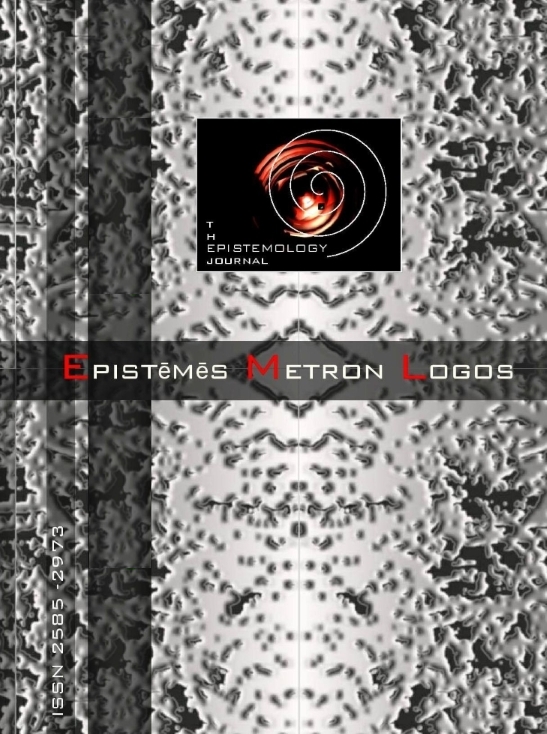The adventure of the expressive, technical and semiotic practice of music during the archaic and cosmological periods.
Περίληψη
The following paper studies the first moments of the philosophical emergence of music as an art but also as a state of mind that guides and controls human symbolic action and composes its distinctive characteristics. The importance of this retrospective is directly linked to the demand of the modern West for a return to its spiritual roots, during the centuries when art and philosophy, expressiveness and concepts, were organically connected and manifested as common systems of experiences. This manifested experience of transformation, historically driven by a number of specific classifications of motives, values, rules and purposes, defined practicality as a fixed principle of wills and by extension of morality. Part of this principle is the self-consciousness of the West to return from time to time to its generative causes, seeking new connections and correlations of the then with the present, in order to evaluate its works: aesthetic and logical knowledge, forms and reflective function, now disconnected from their core of unified understanding, produce new connections and classifications, without renouncing their bond with the past. In this -as a rule- ethical condition, arts and concepts are defined as knowledge that complement each other. The work of the West is indeed difficult, especially in the contemporary environment of universalism, in which identifications and integrations cannot be supported by a unified system of understanding, as was the case in the distant past. Although philosophy and art, expressiveness and reason are understood as mutually complementary concepts, it is not possible to integrate them again into the same cognitive core, given that their purposes have become independent. Art seeks the overall expressiveness of form, while logic seeks segmentation and analysis. Is there therefore fertile ground today for highlighting expressiveness in terms of philosophy? Through the example of music, we will approach art according to the terms of its cultural past and examine its steps only in relation to its own world. The joint observation of the evolving characteristics of music and philosophy will give us answers, not only for evolution, but also for the definitions that would regulate the way of understanding this evolution in future generations.
Λεπτομέρειες άρθρου
- Πώς να δημιουργήσετε Αναφορές
-
Dacrotsis, D. (2023). The adventure of the expressive, technical and semiotic practice of music during the archaic and cosmological periods. Epistēmēs Metron Logos, (9), 9–16. https://doi.org/10.12681/eml.40682
- Τεύχος
- Αρ. 9 (2023): Issue 9 2023
- Ενότητα
- Φορέας Έκδοσης

Αυτή η εργασία είναι αδειοδοτημένη υπό το CC Αναφορά Δημιουργού – Μη Εμπορική Χρήση 4.0.
Οι συγγραφείς των άρθρων που δημοσιεύονται στο περιοδικό διατηρούν τα δικαιώματα πνευματικής ιδιοκτησίας επί των άρθρων τους, δίνοντας στο περιοδικό το δικαίωμα της πρώτης δημοσίευσης.
Άρθρα που δημοσιεύονται στο περιοδικό διατίθενται με άδεια Creative Commons 4.0 Non Commercial και σύμφωνα με την άδεια μπορούν να χρησιμοποιούνται ελεύθερα, με αναφορά στο/στη συγγραφέα και στην πρώτη δημοσίευση για μη κερδοσκοπικούς σκοπούς.
Οι συγγραφείς μπορούν να καταθέσουν το άρθρο σε ιδρυματικό ή άλλο αποθετήριο ή/και να το δημοσιεύσουν σε άλλη έκδοση, με υποχρεωτική την αναφορά πρώτης δημοσίευσης στο EMΛ
Οι συγγραφείς ενθαρρύνονται να καταθέσουν σε αποθετήριο ή να δημοσιεύσουν την εργασία τους στο διαδίκτυο πριν ή κατά τη διαδικασία υποβολής και αξιολόγησής της.



